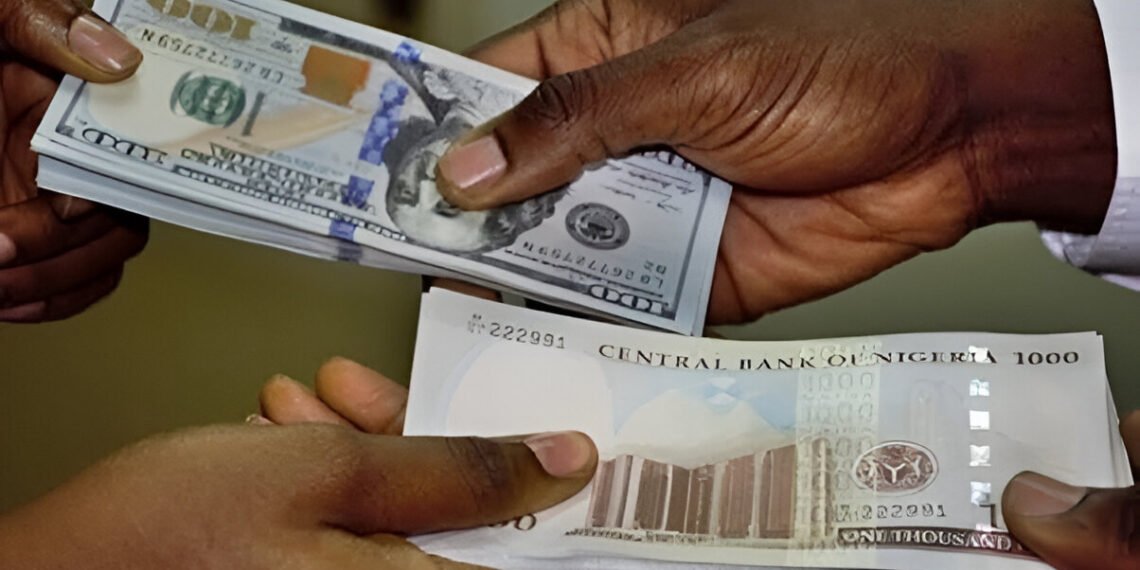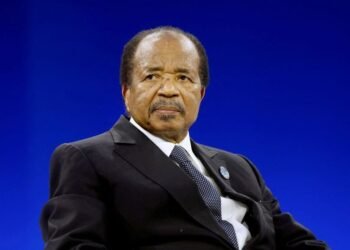The naira continued its upward trajectory on Wednesday, closing at N1,500.91 to the United States dollar at the official Nigerian Foreign Exchange Market. This marked a significant development as the local currency held below the N1,500 per dollar threshold for the second straight day, signaling growing confidence in Nigeria’s financial markets.
Central Bank of Nigeria data showed that the naira moved within a range of N1,498 per dollar and N1,507 per dollar during the day’s trading. The positive momentum, which began at the start of September when the naira opened at N1,526.09 per dollar at the NFEM, has been steady. By Monday, the currency had appreciated to N1,506 per dollar, maintained that level on Tuesday, and then climbed further midweek.

The last time the naira traded at N1,500 per was March 5, 2025, highlighting the importance of this rally in efforts to stabilize the currency. A similar trend was recorded at the parallel market, where the naira appreciated to between N1,515 per dollar and N1,517 per dollar on Wednesday, stronger than the N1,525 per dollar it traded the previous day.
Analysts have linked the sustained gains to improved demand for the naira, reduced speculative pressures, and rising foreign reserves. They noted that current market sentiment points toward continued appreciation in the near term, with external buffers providing stronger support.
Nigeria’s external reserves rose to $41.59bn as of Tuesday, up $25m from the previous day. The steady growth in reserves has been observed in recent weeks, underscoring a healthier balance sheet for the economy.
Analysts Credit Rising Reserves For Currency Stability
In its Macros and Market Insight report released on Wednesday, Meristem Research highlighted the critical role of reserves in supporting the rebound. The firm noted that relative stability in the domestic economy in August was aided by moderating inflation, increased crude oil production, and a surge in capital inflows.
“These factors boosted the country’s foreign exchange reserves by the end of the month, helping to sustain stability in the naira. We see the strengthened reserve position as a key economic milestone, as it reflects robust external buffers and enhances the Central Bank of Nigeria’s ability to sustain exchange rate stability.”
Meristem Research
Meristem further observed that higher reserves could encourage foreign portfolio investors by signaling confidence in Nigeria’s economic outlook. “We expect the positive momentum to persist, underpinned by sustained growth in oil receipts and a steady rise in non-oil exports,” the report added.
“This provides a critical buffer for effective exchange rate management and broader macroeconomic stability. Nonetheless, downside risks stemming from weaker global oil prices, security vulnerabilities in the oil sector, and possible production disruptions persist.”
Meristem Research
At more than $41bn, Nigeria’s reserves translate to around 10 months of import cover, surpassing the global benchmark of three months. Analysts regard this as an important assurance for businesses and investors who rely on consistent access to foreign exchange for cross-border trade and imports.
The latest rally comes as confidence in Nigeria’s economic reforms remains pivotal. The Central Bank has been central to efforts aimed at stabilizing the naira through reforms designed to unify exchange rates, curb speculation, and attract foreign capital inflows.
For businesses, a more stable naira reduces uncertainty in managing import costs and planning investments. Households are also cautiously optimistic, hoping that continued appreciation of the currency could ease inflationary pressures tied to Nigeria’s dependence on imports.
With speculative activities slowing, external reserves rising, and oil revenues supporting inflows, observers suggest that the naira’s current performance is more resilient than previous rebounds. Still, experts warn that maintaining the gains will require sustained macroeconomic discipline, improved crude oil output, and greater diversification of export earnings.
READ ALSO: Israel Launches Airstrikes On Yemen’s Sanaa, Al‑Jawf























